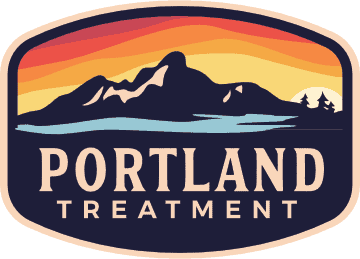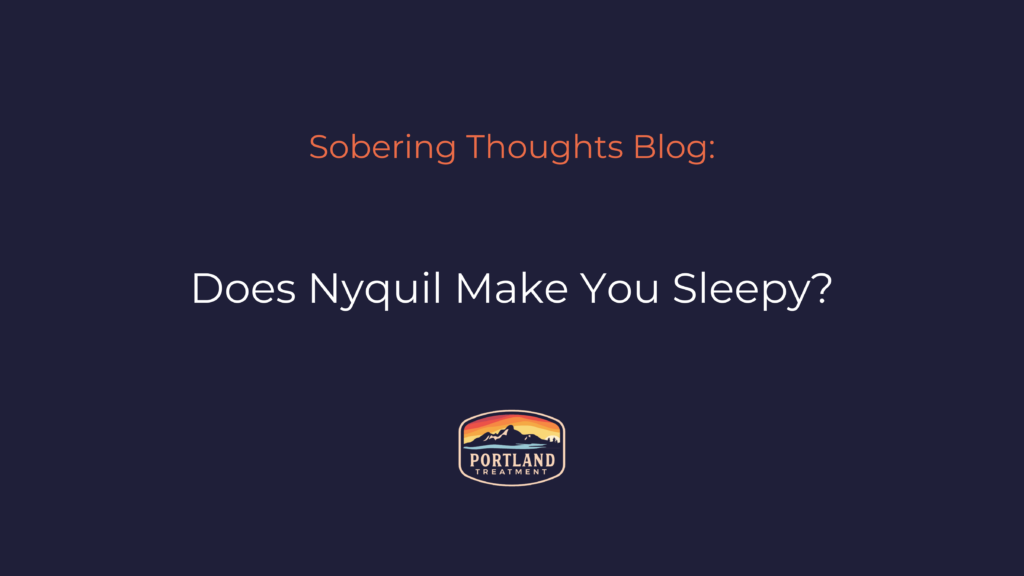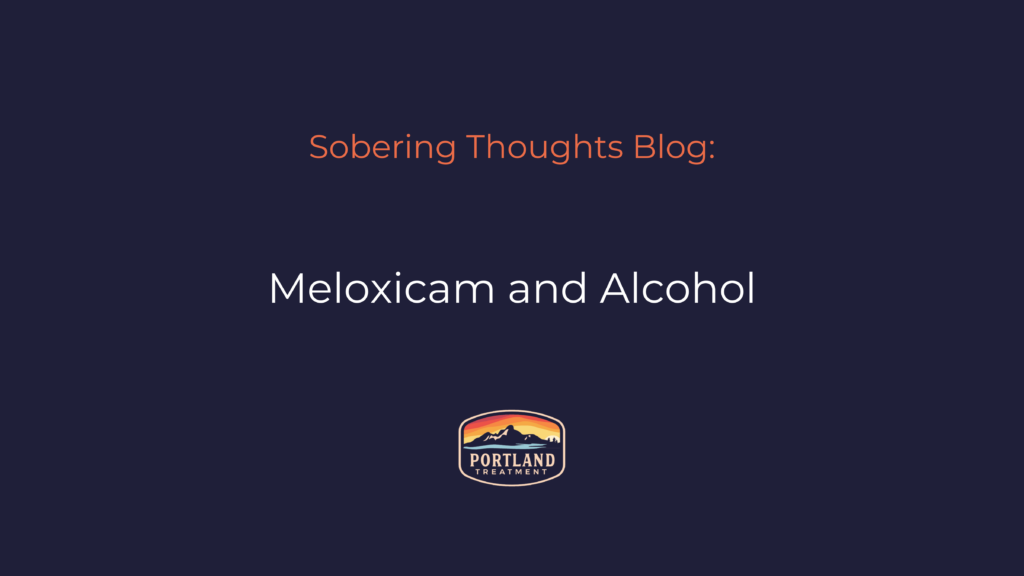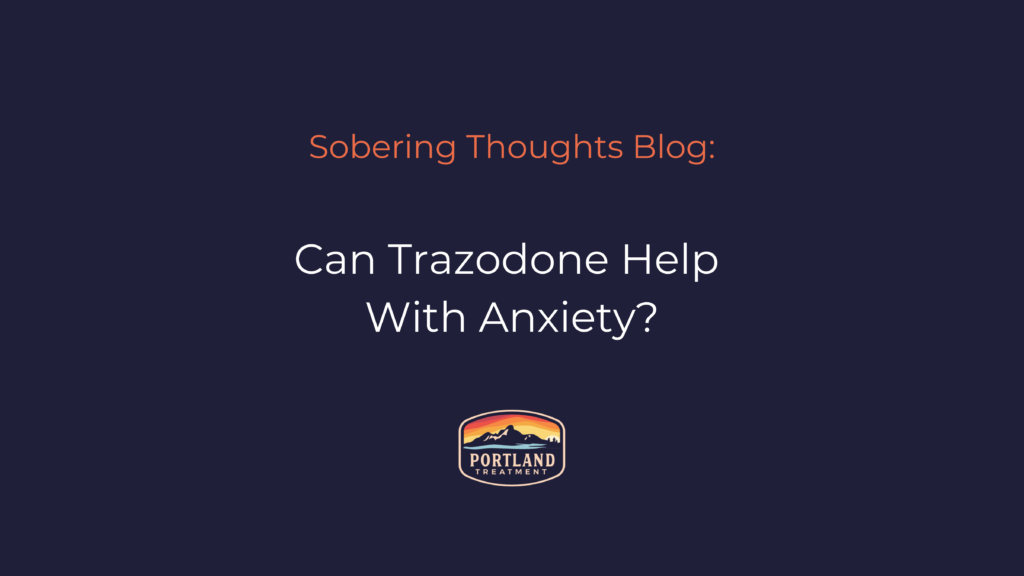In the state of Maine, individuals seeking advanced substance abuse treatment have access to a comprehensive range of services and resources designed to address their unique needs. From investments to expand substance use disorder services in specific counties to education and licensing requirements for substance abuse counselors, this article provides a detailed overview of the …
In the state of Maine, individuals seeking advanced substance abuse treatment have access to a comprehensive range of services and resources designed to address their unique needs. From investments to expand substance use disorder services in specific counties to education and licensing requirements for substance abuse counselors, this article provides a detailed overview of the landscape of substance abuse treatment in Maine.
Accredited and integrated treatment options for teens, parents, and adults, as well as information on counselor certification, clinical supervision, and potential career paths, are all covered here. Readers will find valuable resources, including SAMHSA’s National Helpline and contact information for substance abuse treatment centers in Maine. Whether you are seeking information for yourself or a loved one, this article aims to provide a comprehensive guide to the available support and services for substance abuse treatment in Maine.
Maine’s Choice for Advanced Substance Abuse Treatment
The Mills Administration, under the leadership of Governor Janet Mills, has been at the forefront of advancing substance abuse treatment options in Maine, particularly in Kennebec and Washington Counties, to address the growing need for effective interventions for individuals struggling with substance use disorder (SUD).
Overview of Substance Abuse Treatment in Maine
Treatment for substance use disorder (SUD) in Maine is a critical aspect of the state’s public health initiatives, with a focus on providing comprehensive and accessible care to individuals in need of support for their recovery journeys.
Maine has taken proactive steps to address the challenges of SUD by implementing a range of treatment options that cater to different needs. These initiatives include outpatient programs, residential treatment facilities, and medication-assisted therapy. Community-based organizations play a crucial role in offering support services and educational resources to raise awareness about the available treatment options.
The impact of treatment efforts is evident in the way communities have come together to create a supportive environment for individuals recovering from SUD. With advancements in medical research and an increasing understanding of addiction as a disease, Maine continues to enhance its treatment services to provide holistic care for those affected by SUD.
Investments to Expand Substance Use Disorder Services in Kennebec and Washington Counties
The investments to expand substance use disorder services in Kennebec and Washington Counties represent a pivotal commitment by the Mills Administration to address the specific needs of these local communities, ensuring that individuals grappling with SUD have access to tailored and effective treatment options.
Governor Mills has played a central role in championing these investments, recognizing the urgent need to bolster support for those affected by SUD in these areas. The infusion of resources has resulted in the establishment of new treatment facilities, expanded telemedicine services, and increased community outreach programs.
As a result, residents in Kennebec and Washington Counties now have improved access to comprehensive care, including medication-assisted treatment, counseling, and ongoing support services tailored to their individual needs.
Maine Education Requirements & Certification for Substance Abuse Counselors
Maine’s education requirements and certification processes for substance abuse counselors are designed to uphold the highest standards of care and expertise in the field, ensuring that professionals are equipped with the necessary knowledge and skills to deliver impactful treatment to individuals combating substance abuse.
The Department of Health and Human Services (DHHS) in Maine plays a pivotal role in establishing the criteria for substance abuse counselor education and certification. Prospective counselors typically need to complete a bachelor’s degree in a related field, such as psychology, social work, or counseling, before pursuing specialized coursework in substance abuse treatment. The DHHS also mandates a specific number of supervised clinical hours, often ranging from 2,000 to 4,000 depending on the level of certification sought.
Certification processes involve passing an examination and adhering to a strict code of ethics set forth by state and national professional organizations. Ongoing professional development and continuing education are vital for counselors to maintain their certification and stay abreast of advancements in the field.
Accredited and Integrated Substance Use Treatment
Accredited and integrated substance use treatment in Maine, overseen by the Department of Health and Human Services (DHHS) and aligned with standards set by the Joint Commission Accreditation of Healthcare Organizations, encompasses a range of specialized services, including medically monitored withdrawal and receiving center support, to ensure comprehensive care for individuals seeking treatment for SUD.
The DHHS plays a pivotal role in ensuring that the substance use treatment services in Maine meet the highest standards of accreditation and contribute to the overall well-being of individuals struggling with SUD. Through its oversight, DHHS emphasizes the implementation of evidence-based practices and person-centered care, fostering a holistic approach to treatment.
These accredited services adhere to the stringent standards set by the Joint Commission Accreditation of Healthcare Organizations, ensuring the delivery of quality care that focuses on the individual’s specific needs and promotes long-term recovery and well-being.
Within Maine’s integrated treatment framework, specific programs such as outpatient counseling, medication-assisted treatment, and residential rehabilitation are offered to address the diverse needs of individuals grappling with SUD, providing a continuum of care that supports their journey towards recovery.
Substance Use Treatment Services for Teens & Parents
Substance use treatment services in Maine extend to adolescents and parents, with dedicated support through Recovery Community Centers and Certified Recovery Residences, providing tailored interventions and resources to address the distinct needs of teens and parents navigating the complexities of substance abuse.
These specialized centers and residences play a pivotal role in offering a range of targeted programs, such as family therapy sessions, educational workshops, and counseling specifically designed to support young individuals and their parents throughout the recovery journey.
Recovery Community Centers serve as welcoming spaces where teens and parents can access peer support, engage in sober social activities, and find mentorship from individuals who have successfully navigated similar challenges. On the other hand, Certified Recovery Residences provide safe and stable living environments that prioritize sobriety and community, offering structured support and guidance as adolescents and parents work towards sustainable rehabilitation.
Substance Use Treatment Services for Adults
Maine offers comprehensive substance use treatment services for adults, leveraging initiatives such as MaineCare and Opioid Health Homes to ensure that adults grappling with SUD have access to a spectrum of evidence-based interventions and support mechanisms tailored to their specific needs.
These services encompass a broad range of treatment options, including outpatient counseling, medication-assisted treatment, residential programs, and peer support services. Through MaineCare, eligible individuals can access coverage for mental health and substance use disorder services, enhancing their ability to undergo treatment without financial barriers.
The implementation of Opioid Health Homes plays a crucial role in providing integrated care, linking individuals with SUD to primary care, behavioral health, and social support services, thereby addressing their complex needs holistically. This proactive approach supports individuals in achieving sustained recovery and well-being.
SAMHSA’s National Helpline for Substance Abuse
SAMHSA’s National Helpline serves as a vital resource for individuals seeking information and support related to substance abuse treatment, with proactive engagements with the Legislature and participation in events such as the Opioid Summit to enhance awareness and accessibility of treatment services across Maine.
The helpline operates on a 24/7 basis, making it readily available for individuals in need. It plays a crucial role in offering guidance on treatment options, connecting callers with local services and support groups, and providing referrals to specialized care facilities. In addition, SAMHSA’s National Helpline collaborates with legislative entities to advocate for improved substance abuse treatment policies and resources. Through its active involvement in events like the Opioid Summit, it contributes to elevating the profile of treatment services and fostering partnerships to address the complex challenges associated with substance abuse.
Education and Licensing Requirements for Substance Abuse Counselors in Maine
The education and licensing requirements for substance abuse counselors in Maine are meticulously designed to ensure that professionals in the field meet the highest standards of knowledge and expertise, as set forth by the Department of Health and Human Services (DHHS) and aligned certification bodies.
To practice as a substance abuse counselor in Maine, individuals must typically possess at least a bachelor’s degree in a related field, such as psychology, social work, or counseling. They are required to complete specific coursework and training in substance abuse counseling. DHHS oversees the licensure process and sets forth the criteria for educational qualifications, supervised practice hours, and passing a licensure examination.
Certified Alcohol and Drug Counselor (CADC) Certification
The Certified Alcohol and Drug Counselor (CADC) certification in Maine represents a benchmark of excellence for professionals in the field, signifying their proficiency and commitment to delivering impactful interventions and support within the realm of substance abuse treatment, as recognized by the Department of Health and Human Services (DHHS).
Attaining the CADC certification entails rigorous training, comprehensive assessment, and adherence to stringent ethical standards, ensuring that individuals possess the knowledge, skills, and ethical grounding requisite for effective substance abuse treatment. The validation of expertise through this certification serves as an assurance to clients and employers, fostering trust and confidence in the counselor’s ability to provide exceptional care.
The integration of CADC-certified professionals in treatment facilities elevates the standard of care, enhancing the overall quality and competence within the substance abuse treatment landscape. DHHS’s recognition of this certification underscores its pivotal role in upholding professional standards and aiding individuals in accessing high-quality, evidence-based treatment services for alcohol and drug-related issues in Maine.
Licensed Alcohol and Drug Counselor (LADC) Certification
The Licensed Alcohol and Drug Counselor (LADC) certification in Maine represents a hallmark of proficiency and dedication in the field of substance abuse treatment, with professionals holding this esteemed certification showcasing a commitment to delivering high-quality interventions and support, as recognized by the Department of Health and Human Services (DHHS).
Individuals who have obtained the LADC certification have undergone rigorous training and education in addiction counseling, acquiring the necessary skills to address the complex needs of individuals struggling with substance abuse. This credential signifies their ability to adhere to stringent ethical standards and evidence-based practices, ensuring that they are well-equipped to guide individuals through the challenging journey of recovery.
The DHHS recognition of the LADC certification underscores its role as a vital component in maintaining treatment excellence and upholding the highest standards of care for those battling addiction. It serves as a means of validating the expertise and competencies of professionals, providing assurance to clients and their families that they are receiving guidance from knowledgeable and proficient counselors.
Substance Abuse Counseling Program Accreditation
Accreditation of substance abuse counseling programs in Maine is a testament to the commitment to excellence and adherence to rigorous standards in the delivery of treatment services, under the oversight of the Department of Health and Human Services (DHHS) to ensure the highest quality of care for individuals seeking support for substance abuse.
In Maine, substance abuse counseling programs undergo a meticulous accreditation process that assesses their adherence to state and national standards, primarily overseen by the DHHS. The accreditation process encompasses a thorough evaluation of the program’s curriculum, clinical supervision, counseling practices, and ethical standards to guarantee that individuals receive evidence-based, comprehensive, and compassionate care for substance abuse.
This dedication to upholding accreditation standards not only enhances the credibility and reputation of the counseling programs but also instills confidence in the public and stakeholders regarding the quality of care provided. Recognizing the critical role of accreditation, DHHS works collaboratively with accredited programs to continuously improve and meet the evolving needs of individuals battling substance abuse challenges.
Counselor Testing & Examination Process
The counselor testing and examination process in Maine for substance abuse professionals is a rigorous evaluation designed to assess and validate the expertise and readiness of individuals to deliver impactful interventions and support in the field of substance abuse treatment, as overseen by the Department of Health and Human Services (DHHS) and aligned certification bodies.
These evaluations typically involve comprehensive assessments of the counselor’s knowledge, skills, and ethical judgment in addressing substance abuse issues. Applicants for licensure must undergo thorough educational verification, background checks, and ongoing continuing education to ensure compliance with stringent regulatory standards.
The DHHS plays a pivotal role in setting the high standards for proficiency examinations and coordinating with relevant certification bodies to ensure that individuals meet the required criteria for practice in the domain of substance abuse counseling.
Professional competence is rigorously scrutinized through written examinations, practical assessments, and observation of clinical skills, thereby ensuring that licensed counselors possess the necessary expertise to drive positive outcomes in substance abuse intervention and treatment.
Clinical Supervision for Substance Abuse Counselors
Clinical supervision for substance abuse counselors in Maine is a cornerstone of professional development and support, providing a framework for ongoing learning, guidance, and best practices under the oversight of the Department of Health and Human Services (DHHS) to continually enhance the quality of care and interventions in substance abuse treatment.
Supervision not only ensures that counselors adhere to ethical guidelines and legal requirements, but also fosters personal and professional growth. Through regular consultation, feedback, and reflective discussions, counselors can refine their skills, gain insight into complex cases, and stay updated on evidence-based approaches.
Clinical supervision serves as a mechanism for maintaining treatment standards, ensuring that clients receive effective, evidence-based interventions. This is particularly vital in the context of substance abuse, where the consequences of inadequate or improper treatment can be severe, impacting not only the individuals seeking help but also their families and communities.
Renewal and Continuing Education for Substance Abuse Counselors
Renewal and continuing education for substance abuse counselors in Maine are essential components to ensure that professionals remain updated with the latest advancements and best practices in the field, as mandated by the Department of Health and Human Services (DHHS) and aligned certification bodies to uphold the highest standards of care and expertise.
Continuous learning and education play a pivotal role in enhancing the professional development and competence of substance abuse counselors, equipping them with the knowledge and skills necessary to address the evolving needs of clients and the dynamic landscape of substance abuse treatment.
DHHS mandates underscore the significance of ongoing education, compelling counselors to engage in relevant training programs, workshops, and courses to maintain their certification and meet the state’s regulatory requirements.
Potential Career Paths for Substance Abuse Counselors
Substance abuse counselors in Maine have access to diverse and impactful career paths that are aligned with the state’s commitment to supporting individuals grappling with substance use disorder, with opportunities for growth, specialization, and meaningful contributions to the field of treatment, overseen by the Department of Health and Human Services (DHHS) to ensure the highest quality of care.
The professional landscape for substance abuse counselors in Maine offers rewarding opportunities to work in various settings, including rehabilitation centers, hospitals, community health organizations, and private practices. With a focus on providing evidence-based interventions, counselors can specialize in addiction treatment, mental health counseling, or family therapy to provide tailored support to individuals and their families.
Maine’s commitment to holistic care is evident through its emphasis on integrative approaches where counselors can collaborate with healthcare providers, social workers, and support groups to create comprehensive treatment plans. This collaborative environment fosters professional growth and encourages counselors to stay abreast of cutting-edge research and methodologies.
The guidance and support provided by DHHS ensure that substance abuse counselors in Maine are equipped with the necessary resources, ongoing training, and ethical standards to deliver effective care to those in need. With the state’s increased focus on expanding access to treatment, substance abuse counselors have an opportunity to make a significant impact in improving public health outcomes and promoting recovery within their communities.
Associations & Organizations for Substance Abuse Counselors
A multitude of associations and organizations in Maine provide vital support, resources, and networking opportunities for substance abuse counselors, fostering a collaborative and enriching environment that bolsters the delivery of impactful interventions and care within the realm of substance abuse treatment.
These associations serve as conduits for professional development, as well as platforms for sharing best practices and staying updated with the latest advancements in the field. Among these, the Maine Association of Substance Abuse Programs (MASAP) is a cornerstone organization that plays a pivotal role in advocating for the needs of both substance abuse counselors and individuals seeking treatment.
The Maine Counseling Association (MCA) offers a broad spectrum of resources, from educational events to legislative support, ensuring that counselors have access to the tools and knowledge they need to navigate the complexities of substance abuse counseling.
SAMHSA’s National Helpline: Frequently Asked Questions
The frequently asked questions (FAQs) section of SAMHSA’s National Helpline serves as an invaluable resource, addressing common queries and concerns related to substance abuse treatment, legislative engagements, and initiatives such as the Opioid Summit to enhance public awareness and accessibility of treatment services across Maine.
The SAMHSA National Helpline offers essential information about the treatment and recovery options available to individuals and families affected by substance abuse in Maine. It addresses queries about the various treatment programs, support groups, and counseling services that can help those struggling with substance use disorders.
The FAQ section provides insights into the legislative engagements aimed at improving the quality and availability of substance abuse treatment services across Maine. It delves into the impact of key initiatives, such as the Opioid Summit, in raising public awareness and fostering a supportive environment for individuals seeking treatment and recovery.
Additional Resources for Substance Abuse Treatment
Maine offers a wealth of additional resources to supplement and augment substance abuse treatment efforts, sanctioned and supported by the Department of Health and Human Services (DHHS) to ensure that individuals in need have access to a diverse array of interventions, support systems, and community-based programs for their recovery journeys.
These resources encompass a wide range of services, including outpatient counseling programs, residential treatment facilities, support groups, and rehabilitation centers tailored to meet the unique needs and circumstances of individuals seeking recovery from substance abuse.
Community-based initiatives, such as sober living homes, peer mentoring programs, and outreach services, play a crucial role in offering ongoing support and establishing a network of like-minded individuals committed to sobriety.
Contact Information for Substance Abuse Treatment Centers in Maine
Accessing contact information for substance abuse treatment centers in Maine is essential for individuals seeking support, with the guidance and oversight provided by the Department of Health and Human Services (DHHS) ensuring the accessibility and reliability of crucial contact details for those in need of assistance for their substance abuse recovery journeys.
Through its comprehensive oversight, DHHS plays a pivotal role in verifying and updating the contact information for substance abuse treatment centers across Maine. This ensures that individuals and their families can easily connect with the right resources to address substance abuse issues.
The contact information often includes phone numbers, addresses, and website details, and DHHS strives to regularly review and validate these details to maintain accuracy and reliability. By collaborating with treatment centers, DHHS aims to streamline the process of reaching out for support, ensuring that those in need can easily access the help they require.
Frequently Asked Questions
What is Maine’s Choice for Advanced Substance Abuse Treatment?
Maine’s Choice for Advanced Substance Abuse Treatment is a comprehensive program that offers advanced treatment options for individuals struggling with substance abuse.
What types of treatment are available at Maine’s Choice for Advanced Substance Abuse Treatment?
Maine’s Choice offers a variety of treatment options, including residential treatment, outpatient programs, and medication-assisted therapy.
What sets Maine’s Choice for Advanced Substance Abuse Treatment apart from other treatment centers?
Maine’s Choice utilizes evidence-based treatment methods and a personalized approach to care, ensuring that each individual receives the most effective treatment for their unique needs.
Who is eligible for treatment at Maine’s Choice for Advanced Substance Abuse Treatment?
Maine’s Choice welcomes anyone struggling with substance abuse, regardless of age, gender, or background.
Does Maine’s Choice for Advanced Substance Abuse Treatment accept insurance?
Yes, Maine’s Choice works with most major insurance providers to make treatment more affordable for individuals seeking help.
Is aftercare support available at Maine’s Choice for Advanced Substance Abuse Treatment?
Maine’s Choice offers ongoing support and resources for individuals who have completed their treatment program, helping them maintain their sobriety and prevent relapse.
Comprehensive and Compassionate Addiction Treatment at Portland Treatment in Maine
At Portland Treatment in Maine, we are deeply committed to providing comprehensive and compassionate care for those struggling with addiction. Our approach is holistic, focusing on the individual as a whole, rather than just the symptoms of addiction. We understand that each journey to recovery is unique, and our expert team is dedicated to creating personalized treatment plans that cater to the specific needs and circumstances of each client.
Our facility offers a wide range of services designed to support individuals at every stage of their recovery journey. From initial detoxification to inpatient rehab, outpatient programs, and ongoing aftercare support, we ensure a continuum of care that fosters lasting recovery. Our treatment modalities include evidence-based therapies, innovative treatment techniques, and holistic approaches that encompass mental, physical, and emotional health.
Recognizing the importance of a supportive environment in the recovery process, Portland Treatment provides a nurturing and safe space where individuals can heal and grow. Our programs are designed to empower clients, helping them develop the skills and resilience needed to overcome addiction and rebuild their lives. Family involvement is also a key component of our approach, as we believe in healing and strengthening family relationships as part of the recovery journey.
At Portland Treatment, we pride ourselves on our team of highly qualified professionals who bring a wealth of experience and expertise to our programs. Our staff includes licensed therapists, medical professionals, and addiction specialists who are passionate about helping individuals achieve sobriety and wellness. We are constantly evolving our practices to incorporate the latest research and best practices in addiction treatment, ensuring the highest standard of care for our clients.
Choosing Portland Treatment in Maine means choosing a path to recovery that is supported by expertise, compassion, and a commitment to excellence. We are not just a treatment center; we are a community dedicated to helping individuals and their families overcome the challenges of addiction and move forward to a brighter, healthier future.






